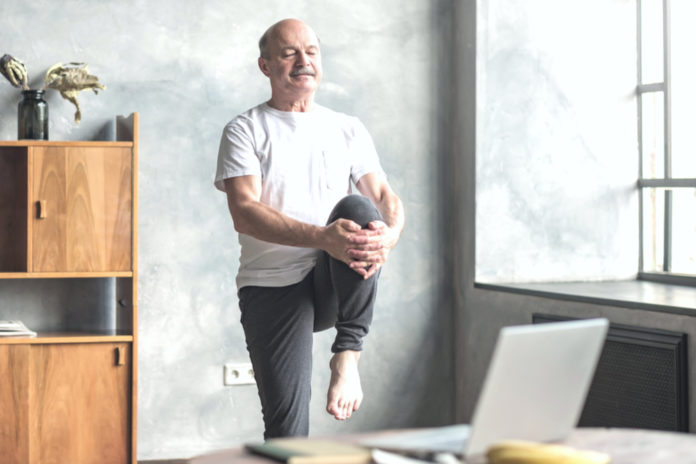Figuring out how to age gracefully may seem like another aspect of aging to keep track of years pass. But finding simple ways to age beautifully can help enhance mental health, keep stress levels low, and make sure seniors stay active.
Really, aging gracefully does not have to be complicated. This especially serves true with the assistance of these helpful tips!
Read on for 11 of our best diet and exercise tips that make aging beautifully a breeze.
Proper Diet
Plant-based sources of nourishment are supported by research to combat the negative effects of aging. In addition, obesity has been associated with accelerating the aging process.
Creating a healthy lifestyle through a healthy diet can help ensure balanced aging and proper weight management.
Bone Broth
The collagen content, powerful antioxidants, and hydrating properties of bone broth may fight aging. Such anti-aging properties may protect skincare, fighting against fine lines and wrinkles, and provide the brain with extra benefits.
Fruits & Vegetables
Colorful produce typically contains higher levels of healthy fats, vegetable oils, and nourishing vitamins and minerals. Eating a variety of fruits and vegetables at meals and through snacks can help older adults age.
Start the Day Out Right
Changes in hormone levels and appetite can make it easier to forget the most important meal of the day. However, starting the morning with foods rich in vitamins, minerals, fiber, and other important nutrients can give older adults a dose of energy.
These key nutrients can also help:
- Balance blood sugar
- Kick start and ensure a healthy metabolism
- Encourage other healthy habits throughout the course of the day
Get the Proper Protein Each Day
Ensuring protein needs for the elderly is important for maintaining muscle mass, reducing the risk of chronic disease, and supporting other healthy habits and benefits during the aging process. The following foods can be excellent sources of lean protein:
- Skinless chicken breast
- Beans and legumes
- Fish (i.e. tuna, salmon, shrimp, tilapia)
- Lean ground meat (i.e. beef, chicken, turkey)
Other great sources of protein include oats, nuts, low-fat cheeses and milk products, soy, eggs, and peas.
Eat Quality Starch Sources
Highly processed breads, biscuits, and other bakery products can sound appealing and easier to prepare with age. However, unrefined and unprocessed starchy foods, such as the following, offer nutrient-rich carbohydrates:
- Whole wheat breads
- Whole wheat pastas
- Brown rice
- Quinoa
- Beans
- Legumes
Mental Health
In older adults, one in four experiences a mental disorder. These disorders, such as depression, anxiety, and dementia, can be deterred by simple shifts in health and well-being to activities that are positive and productive.
In addition to eating well and exercising, these other tips can help the brain stay sharp and the mind stay healthy.
Stay Connected
Whether through a physical gathering of the community or through virtual connections online, seniors can stay healthy by forming connections. Interacting with others allows older adults to form supportive circles that can stay close through both good times and bad.
Here are some ideas for staying connected through community relationships:
- Adult daycare programs
- Local civic centers
- Volunteer organizations
- Faith-based groups
- Support groups
- Online entertainment groups
- Online research groups
- Online classes
Consider Getting a Pet
Pets can become part of the family, and help reduce feelings of isolation and the risk of mental illness. Some service animals can even be trained to respond to medical emergencies such as seizures or sudden drops in blood pressure.
Pets also prompt feelings of security and motivate the owner throughout the day. Who does not love a furry little friend?
Keep the Brain Busy
Here are some excellent ideas for keeping the mind sharp and stimulated:
- Puzzles
- Sudoku
- Reading a book
- Playing or practicing an instrument
- Playing a board, card, or other games
- Crossword puzzles
- Arts and crafts
- Cooking or baking
- Completing and organizing project
Practice Good Sleep Hygiene
Seniors are at increased risk of sleep disturbances, insomnia, and chronic disease related to sleep problems. Better sleep has incredible benefits for daily life and can go a long way in boosting mental health and mood.
If struggling to get seven to nine hours of sleep each evening, try curing insomnia by formulating a bedtime routine. Limiting caffeine, naps, and screen time can likewise be helpful.
Ways To Keep Stress Low
Healthy stress management mechanisms are encouraged for older women and men trying to age gracefully. It is important to avoid addictive behaviors such as smoking or substance abuse.
Instead, focus on engaging in productive and healthy activities such as the ones listed below.
Ideas of Activities to Engage In
- Yoga
- Meditation
- Breathwork or breathing exercises
- Finding support and trust in others
- Nurturing close family and friend relationships
- Attending spiritual gatherings/church services
- Book Club
- Getting a dog or cat for companionship
- Calling an older friend or mentor once a week
- Asking for help
- Seeking a caregiver if needed
- Learning a new skill
- Learning how to express how you are truly feeling and doing
Low Impact Exercise
Beyond keeping the body looking and feeling young, regular exercise can help people age gracefully. Aim for at least 30 minutes of exercise a day at least three times a week.
Ideas for Exercise
Possible options for exercise include, but are not limited to:
- Walking
- Biking
- Swimming
- Resistance training
- Balance training
- Jogging
- Cycling
Developing lasting habits for good health can help manage fall risks and improve mobility and cognition during the aging process. They can also deter the risks of heart disease, diabetes, dementia, and other chronic health conditions.






